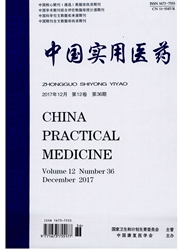

 中文摘要:
中文摘要:
目的 研究猪与人的周围神经脱细胞处理后其结构与成分的差别,为以猪去细胞神经替代人去细胞神经用于修复神经缺损作前期探索.方法 取健康成年猪和下肢截肢患者的胫神经,用化学去垢剂按一定程序进行脱细胞处理.通过大体观察、HE染色、甲苯胺蓝染色、免疫组织化学染色和透射电镜检查,比较猪与人的周围神经去细胞处理前后其结构、许旺细胞与轴突标志蛋白以及细胞外基质的变化.结果 经脱细胞处理后,猪与人的神经结构均略变疏松,仍保留较好的弹性和伸展性.显微镜下观察,两者均未见细胞或其碎屑残留,髓鞘消失,纤维性支架结构保持良好,S-100蛋白和神经丝蛋白(neurofilament,NF)的表达较处理前显著减弱,而层粘蛋白(laminin,LN)的表达无显著变化,神经基底膜管和神经组织的支持结构保留完好.与人去细胞神经比较,猪去细胞神经结构更疏松,神经束间细胞间质更丰富,但成分差异无显著性.结论 猪去细胞神经与人去细胞神经的结构和成分相近,可能取代人去细胞神经用于修复神经缺损.
 英文摘要:
英文摘要:
Objective To compare the differences in the structures and components between the porcine- derived and human-derived acellular nerve grafts (ANG), so as to probe the possibility that using the porcine-derived ANG as the alternatives to the human-derived ANG for peripheral nerve reconstruction. Methods The tibial nerves harvested from the porcine and human were treated with chemical detergents. The gross appearances and microstructure of two kinds of ANG were examined. The immunohistochem- istry stains were performed to detect the components of the ANG in terms of S-100, neurofilament(NF) and laminin (LN). Results Both porcine-derived and human-derived ANG were semitransparent and oyster white in appearance. They were slightly looser and softer than the fresh nerves, but kept the good e- lasticity and extensibility. HE stained showed the microstructure of the porcine-derived ANG was compara- ble to that of the human-derived ANG, except for the larger space between the nerve fasciculi in the porcine-derived ANG. No visible ceils and their debris were found in the ANG. However, the fibrous framework was kept intact. The myelin and axons, which were represented by S-100 and NF, were re- moved from the nerves. Meanwhile, the extracellular matrix represented by LN was preserved. There were no significant differences in the expression of S-100, NF, and LN between the porcine-derived and human derived ANG. Conclusion The structures and com- ponents of the ANG derived from the porcine and human are similar. The procine-derived ANG might be used to repair nerve defects as an alterative to the human-derived ANG.
 同期刊论文项目
同期刊论文项目
 同项目期刊论文
同项目期刊论文
 期刊信息
期刊信息
